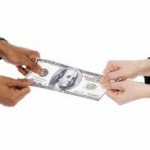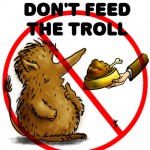 The threat of false marking lawsuits has garnered much attention in the IP business press in the last couple of years. Companies of all sizes have been hit with qui tam actions (that is, suits brought by an individual or company on behalf of the US government to right wrongs done to the government, not the individual) where the basis of the action is the mis-marking of a product with an incorrect or expired patent number. Like a gold rush, these lawsuits have resulted in a number of legal entrepreneurs seeking out products that are incorrectly marked--usually by identification of expired patents, which is an easy thing to find--and their bringing suit against the offending companies. Indeed, there were over 500 false marking lawsuits filed in 2010, making this cause of action seem almost like a
The threat of false marking lawsuits has garnered much attention in the IP business press in the last couple of years. Companies of all sizes have been hit with qui tam actions (that is, suits brought by an individual or company on behalf of the US government to right wrongs done to the government, not the individual) where the basis of the action is the mis-marking of a product with an incorrect or expired patent number. Like a gold rush, these lawsuits have resulted in a number of legal entrepreneurs seeking out products that are incorrectly marked--usually by identification of expired patents, which is an easy thing to find--and their bringing suit against the offending companies. Indeed, there were over 500 false marking lawsuits filed in 2010, making this cause of action seem almost like a
False Marking Lawsuits are Real Problem for Business and Make Little Sense When Applied to Expired Patents
False Patent Marking Lawsuit Update: A Tale of Successful Defense Strategy
In November, 2010, I wrote a blog post where I talked about a client who was sued for false marking, even though they had months before the suit changed the packaging of their product. We subsequently obtained a good result with our litigation strategy, and I think others may benefit from this experience. Moreover, I think it is important for we lawyers to share strategies for the overall benefit of our respective clients. This is not done enough: we legal experts all-too-frequently provide sagely advice from the comfort of our own siloed client experiences. For the past 3 years as a blogger, I have been working to build a more public dialogue on IP strategy, and did not want to let this opportunity go by to let others know of a successful strategy in dealing with a false marking litigation. (I feel comfortable sharing my experiences with this litigation,
The Coming Explosion of the Patent Monetization Market: Brought to You by Open Innovation and What Needs to Happen in Order to Speed Up the Process
This week, I got a call out of the blue from a very senior business development person at a Fortune 10 technology company "wanting to know more" about patent licensing and monetization. This was a bit strange: his company has literally dozens of patent professionals on staff, files 100's of patents a year and, as I found out, has 35 or so business people working on patent licensing and monetization efforts for the organization. So, why would he (let's call him "Bob") need to talk to me these topics? Certainly, there is a veritable army of highly-paid smart people to answer IP and patent questions at his beck and call, and I was interested in finding out what Bob sought to find out from me that he could not get from his own people. I was not surprised to find out that Bob did not want to learn more about buying and selling
A Patent Reality Check: Litigation Not a Viable Revenue Source for Most Inventors
The ability of an intrepid inventor to strike it rich from a great idea seems to be embedded in the DNA of many Americans. Perhaps this view emanates from the presence of patents in the US Constitution, which could create a feeling that US citizens have an "inalienable right" to use patent protection to their advantage. Alternatively, people may perceive the occasional media reports of successful inventors and substantial patent litigation awards as a signal that patents can serve as a path to wealth for those with great ideas (certainly, this is the Hollywood view). In truth, however, getting rich merely from a patent is a rare occurrence--maybe not as low a probability as winning the lottery, but the odds are incredibly long that any person can make money from a patented idea alone. Think about it: if all it took was a patent to make someone wealthy, there would be
The NY Times is Wrong: Patent Auctions Do Not Provide Indendent Inventors with “Protection”

- Patent auctions will do little to help independent inventors sell their patents
Is There an Emerging Business Model for IP Lawyers’ Owning So-Called "Patent Trolls"? Only Until Their Corporate Clients Find Out.
Dennis Crouch of The PatentlyO blog recently posted an intriguing tidbit about about well-known IP attorneys Carl Moore (Of counsel at Marshall Gerstein); Timothy Vezeau (patent attorney at Katten Muchin); and Nate Scarpelli (who used to and still appears to be associated with Marshall Gerstein). These prominent members of the Chicago IP community appear to be "moon-lighting" from their respective law practices to act as managing partners at a patent holding company called "Virtual Photo Store LLC" ("VPS"). As reported in PatentlyO, VPS is currently involved as defendant in a Declaratory Judgment action.
Here is a copy of the DJ Complaint, also posted at PatentlyO. (Interestingly, the Complaint lists VPS' address as that of the Marshall, Gerstein law firm.)The Complaint alleges that VPS is a non-practicing entity
about well-known IP attorneys Carl Moore (Of counsel at Marshall Gerstein); Timothy Vezeau (patent attorney at Katten Muchin); and Nate Scarpelli (who used to and still appears to be associated with Marshall Gerstein). These prominent members of the Chicago IP community appear to be "moon-lighting" from their respective law practices to act as managing partners at a patent holding company called "Virtual Photo Store LLC" ("VPS"). As reported in PatentlyO, VPS is currently involved as defendant in a Declaratory Judgment action.
Here is a copy of the DJ Complaint, also posted at PatentlyO. (Interestingly, the Complaint lists VPS' address as that of the Marshall, Gerstein law firm.)The Complaint alleges that VPS is a non-practicing entity
Chief Circuit Judge Michel Agrees with Me: NPE’s (aka "Patent Trolls") are Not Necessarily "Illegitimate"
On his great 271 Blog, Peter Zura posted excerpts of the Chief Circuit Judge Michel's keynote address at the FTC hearings on "The Evolving IP Marketplace" last December where Judge Michel addressed the state of patent law and patent reform. Anyone interested in patents, the USPTO and patent reform should take a look. I posted a comment on this post, and am reposting it here (with additions) along with Judge Michel's comments about NPE's as presented on the 271 blog. Specifically, I was intrigued by Chief Circuit Judge Michel's view that NPE's ("non-practicing entities" also known by the pejorative term "patent trolls") should not be viewed as somehow "illegitimate." He apparently believes that by allowing those who are on the receiving end of NPE lawsuits to control the argument by "naming and framing" (my phrase) the problem as "trolls" is not helpful. Here is the excerpt of this part of
An Introduction to Patent Monetization Resources for Corporations and Entrepreneurs
For corporations and entrepreneurs seeking to monetize their un- or under-utilized patent rights for the first time, it can be difficult to know where to begin. The patent monetization market is not yet mature and, as with other emerging marketplaces, no established methodologies and few experts exist to guide patent owners through the process. Today, there are as many as 17 different business models used to monetize patent rights. More will likely spring up as the market continues to evolve, even while some of the current models will certainly fall away. With such a range of options, it is not surprising that those seeking to sell their patent rights may be confused about what path to take. This blog post is intended to provide an overview of ways that a corporate and individual patent owners can most effectively monetize their patent rights in today's market. The models discussed in this article
Investors in the Green Economy: You Could Lose Your Investment in Green Innovators by Failing to Identify the Green Inventors that Came Before Them
With President-Elect Obama's announcement that he will establish an "Apollo Project" to develop a Green Economy, there is no doubt that "the Green Technology train has left the station." Indisputably, investors will start to invest heavily in companies that appear to possess commericializable Green Technology that will enter the marketplace as the US embraces the Green Economy and develops the necessary infrastructure to make this happen. Before staking a claim to one or more of these companies, however, investors should understand whether existing patent rights owned by third parties could undermine the investment potential of even the most promising Green Technology innovators. Anyone seeking to capitalize on the Green Economy and its attendant Green Technology must recognize a fundamental reality of US patent law: in granting a patent, the Patent Office cares only that an invention is useful, novel and nonobvious. Significantly--and this is the rub for investors in Green
Confessions of a Non-Recovering Patent Troll Enabler
I came across this TechDirt article: Exposing The Patent Troll Playbook... And How To (Almost) Beat It (h/t Ron Carson, VP of Marketing at Innovation Asset Group). This is an insider's account of what it is like to be the victim of a so-called "patent troll". Perhaps better than the article itself are the comments which make it clear how passionate people are about the topic of patent trolls. This is recommended reading, if just for the entertainment value of the comments. Reading the TechDirt article made me recall my time as a junior litigator at a well-known Atlanta law firm. As a very green (and tired) young attorney, I sent many "licensing offer letters" for the AudioFax Company. In this role, I was an enabler of a very successful patent troll. And, as set out in this post, I have continued to enable patent trolls throughout my more


